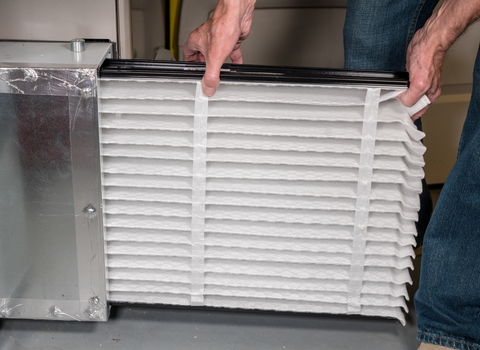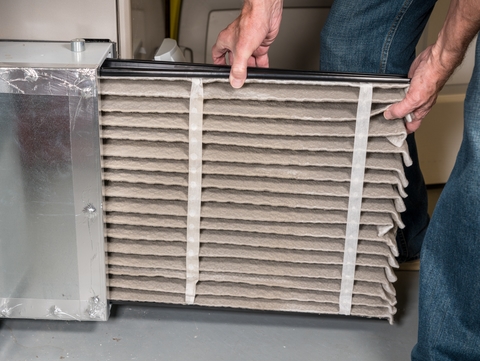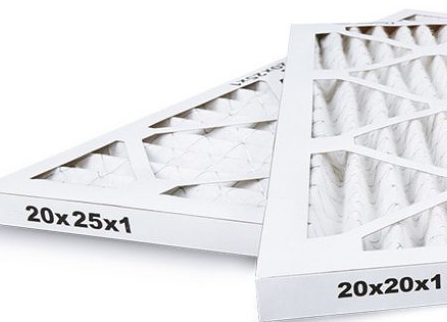Heater Air Filters: When To Change And How To Find Them

How, When, and Where to Change Your Heater Air Filter
It’s almost winter. Do you know where your heater air filter is?
Well, we do have a little while. But, everyone should change the air filter four times a year. The best way to do it is at the beginning of every season.
So, the beginning of autumn is a good time as well — as long as you know what to do.
In this post, we’re looking at heater air filters. As the headline suggests, that includes where to find them, and how to change them.
But, we’ll also look at when you should swap them out more often than usual. Or, if you should invest something besides the run-of-the-mill ones.
In the meantime, feel free to give us a call if you have any questions. At Broadley’s, we’ve been servicing South Jersey and the shore points for nearly a century. We know all about the specific needs of the homes — and homeowners — in the area.
Now, before we dive into the “How,” let’s look at the “Why.”
What Does the Air Filter Do?
The air filter on your heater blocks tiny particles from circulating through your house and gumming your HVAC system As dust, dirt, debris, and other contaminants travel through the system, they get trapped by the filter. Meanwhile, air continues passing through.
The filter, or screen, is a combination of cotton and other fabrics stretched across a wire mesh. Usually, there’s a cardboard frame around it.
Eventually, however, there’s so much junk on the filter that it begins blocking the air from passing through as well.
You can tell by the color of the screen. When you put in a new one, it’s white. But, it gets discolored over time.
Finding and Changing Your Air Filter
Now, let’s find that air filter. They’re not bolted to anything, and you don’t need to take anything apart to get to it.
Look for an enclosure toward the bottom of the unit. Usually, there’s a slot where the screen rests. Or, look for a slot toward the top.
Either way, you should be able to look in and see the filter sitting there. Slide it out gently.
There’s really nothing in there to break. But, you don’t want the screen to get caught on anything.
If you’re not sure what filter to buy, you’ll find the answer here. Each one lists its dimensions on the cardboard frame. It’s usually written out like, “20x20x1.” That would be 20 inches wide, 20 inches long, and one inch thick.
All you have to do is buy another filter matching that size. Then, slide in the new one. That’s it!
Unless, of course, you need to change it more often than usual.
- You have dogs or cats
- You suffer from asthma or seasonal allergies
- People smoke in the house
Dogs and Cats
Your furry friends are just that: furry. We all know they shed, but you might not realize how much of that fur ends up in your vents.
The same goes for dander, which is like dandruff only for dogs, cats, and even birds.
It all ends up in the air filter. So, try changing it every two months instead of three.
Asthma and Allergies
Respiratory problems get triggered by contaminants in the air. For asthma, it’s dust and dirt. For seasonal allergies, pollen in the spring is the big culprit.
You can use your HVAC system to help reduce these in your home. In this case, keep a cleaner filter changing it out every six weeks.
And, consider upgrading to a screen that catches even smaller particles than the average filters. Look for one with a MERV rating between 9 and 12.
Smokers
Not as many people smoke in their homes today as they did a few decades ago. But some people still do. And, it affects their indoor air quality.
Particles from tobacco smoke will clog up a filter just like dirt, dust, and dander. So, if you light up inside, change the filter once a month.
And, if you want to reduce some of the lingering smells, go with an activated carbon filter.
However, no filter will get rid of the toxins. An air purifier will reduce the buildup of residual particles from smoke more than a screen. But, no matter what, some of it will linger for years to come.
These are all good starting points. But, you still want to make sure your filter is working properly. That includes knowing when it’s not.
Four Signs Your Heater Air Filter is Clogged
You’ll start noticing problems when your heater’s air filter is clogged. Check the screen if:
- Not enough air comes through the vents
- Your energy bill suddenly goes up
- There’s more dust in the air
- Your heater blows cold air
It’s worth noting that other problems can cause these things, too. But, if you notice them, checking your air filter is an easy and inexpensive place to start.
Not enough air comes through the vents
We touched on this already: When the screen is full, air can’t pass through. You’ll notice this when there’s not enough air coming through the vents.
If it’s not the filter, there’s probably a blockage somewhere along the line.
 Your energy bill suddenly goes up
Your energy bill suddenly goes up
Next, you may see a sudden rise in your heating bill. This happens when the blower works harder than it should to push air past the clogged screen.
You may notice this in addition to weaker circulation. Or, the blower may be up to the task, but using more energy than usual to do it.
More dust in the air
Another problem with a clogged screen is that it can’t trap anything else. Now, instead of attaching to the fabric, the dust in your system travels freely.
When that happens, it makes its way through the vents and back into your house. You may notice a cough or sneezing. Or, asthma and allergy symptoms.
Heater blows cold air

When air can’t pass through the system, neither can heat. Then, it backs up into the heat exchanger. When the system starts to overheat, it blows cold air to regulate itself.
But, when that happens too often, the exchanger will crack from the heat and sudden temperature changes. Once that happens, the entire heater needs replacement.
So, check your filter right away if you notice happening. And, call in a professional to check over the system, too.
Or, if you have any other questions about your filter — or any part of the heating and cooling process — reach out to Broadley’s.








 Your energy bill suddenly goes up
Your energy bill suddenly goes up